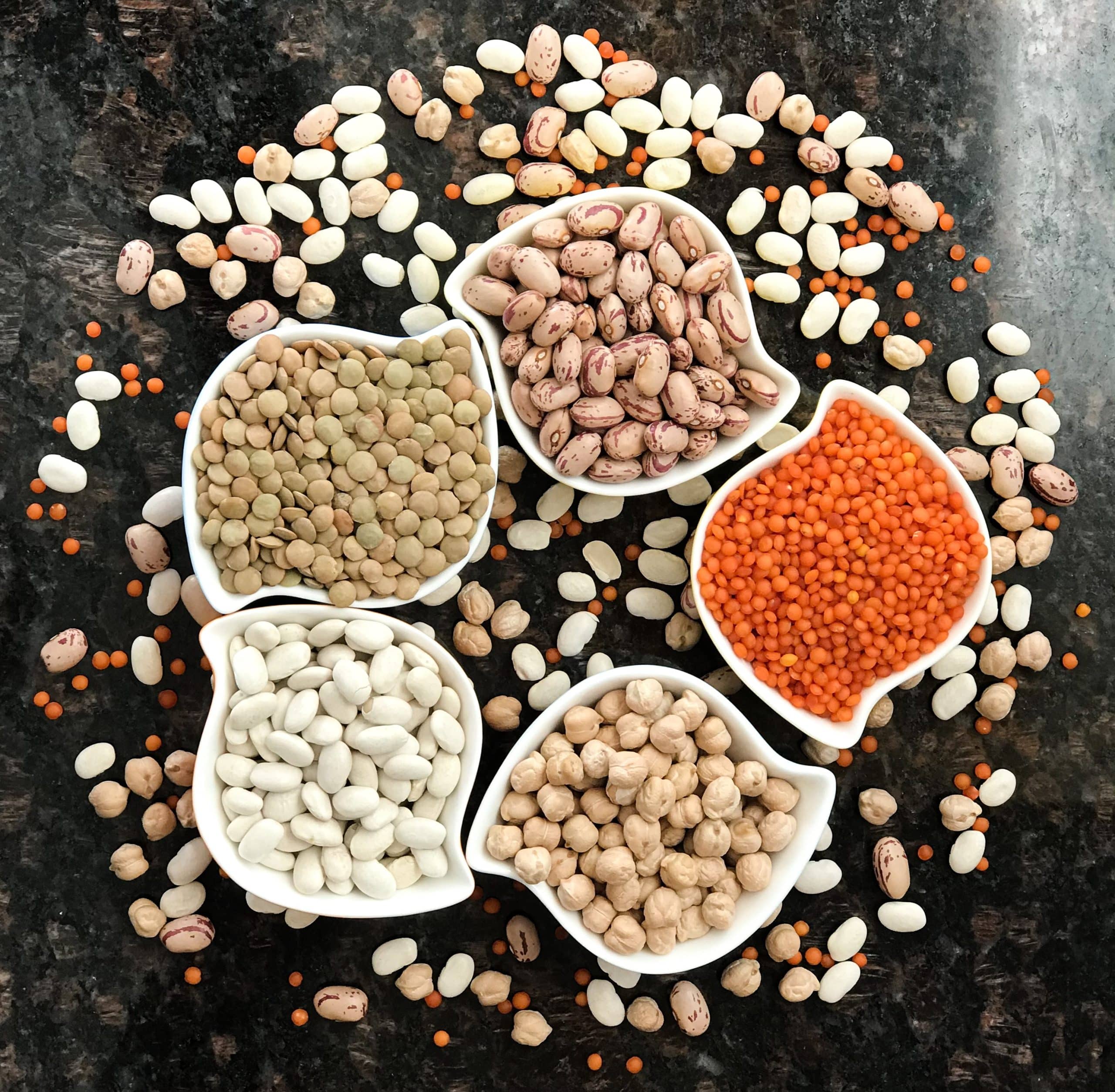Ingredients Spotlight Part III
Learn about the plant-based protein industry to discover what consumers want from your products
We’re in a time when research on plant-based ingredients for alternative proteins is booming. Never before has there been so much innovation in the plant-based protein space, with novel ingredients being used to produce products that could not have been imagined 50 years ago (like jackfruit and mycoprotein).
But like most food ingredients, consumers have their preferences when it comes to plant-based proteins, and they also have misconceptions that affect their willingness to purchase products containing certain plant proteins.
Before drilling down to specific protein ingredients, it is vital to understand the profitability, drivers, and initial barriers that affect the plant-based protein market.
How successful is the plant-based protein market?

According to market-research firm Innova Market Insights, most consumers around the globe are interested in having protein ingredients in their food and beverages, including 89% of Latin America, 90% of Asia, 78% of North America, and 75% of Europe.1
As a result of this growing trend, plant proteins are increasingly being used in the food-and-beverage industry. Consequently, the global plant-based protein market worth hit US$18.49 billion in 2021, with predictions that it will reach US$40.8 billion by 2027 at a staggering compound annual growth rate (CAGR) of 14.1%.2
This market is segmented into soya, wheat, pea, canola, potato, rice, and others. These plant-based proteins are produced as isolates, concentrates, and others, in a variety of applications: food and beverages, infant formulation, animal feed, personal care, and nutrition-and-health supplements.3
The rise in product launches with plant-protein ingredients coincides with the COVID-19 pandemic, but Innova analysts think that it is likely occurring as a result of a rapidly expanding trend and ingredient innovation, rather than as a response to the pandemic.4 Other factors that have fuelled the demand for and adoption of plant proteins include product availability, enhanced product development, and a broader range of available substitutes and alternatives.5 Consumer concern with both personal health and that of the planet is driving interest in alternatives to animal protein.6
What do consumers want from plant-based protein ingredients?

More than anything, consumers want plant-based protein ingredients that can contribute to products that are as tasty as animal-protein products, with a similarly desirable texture and functionality.
Indeed, taste is the most important factor affecting consumers’ making a plant-based purchase.7 Joe Formanek, Director of Ingredient Innovation at Ajinomoto Health & Nutrition, explains: “Consumers want a product that handles the same as its animal-based model, which means [for example] that a plant-based burger should generate the same aromas and flavours, and develop the same cooked appearance and feel as the original. This is where food science comes into play, and where an understanding of the ingredients that deliver these qualities is essential.”8
“We consider things like protein content, quality, texture, taste, and appearance, among others, when screening proteins. Some have very strong off-taste or dark colours and these would be discarded to make plant-based chicken or fish, which have a very neutral base. For plant-based beef, however, we can afford to have a more coloured starting point, as the final product is red. Choosing the correct protein is key to achieving the desired texture and fibrosity, which is why it varies from product to product.”
Consumers also want healthy plant-based proteins. Health was the second most important factor to shoppers buying plant-based foods, a recent survey of European consumers found. The respondents also stated that it is important to them that the plant-based food products they choose are fresh (third position in the ranking), have no additives or artificial ingredients (fourth position in the ranking), and are cheap (fifth position in the ranking). Ethical aspects, such as the environment and animal welfare, took sixth and seventh place.
The health-and-additives aspects clearly pertain to the topic of clean labels, which is increasingly of concern to consumers, especially when it comes to plant-based proteins, which often have a fairly long ingredient list.
What barriers are holding back the plant-based protein industry?

Aside from consumer misconceptions, the plant-based protein industry experiences several barriers. Though the consumption of plant-based protein sources can be highly beneficial for health, some types of protein ingredients have been identified as allergens. Both wheat and soya have been labelled as two of the ‘Big Eight’ allergens – along with cow’s milk, eggs, peanuts, tree nuts, fish, and shellfish – responsible for 90% of food allergies.9
While allergies to pea protein are uncommon, some health professionals are concerned that the ingredient is not highlighted on food labels, with growing numbers of people developing an allergy to pea protein.
Consistent research into innovative protein sources is vital to overcome allergen issues – the more tasty, functional, and nutritious alternative-protein ingredients are identified, the more available and accessible plant protein will become to all consumers.
“Our R&D [research and development] team, the TechRebels, engages in continuous extensive research to evaluate the feasibility of using other protein sources. We have screened different types of proteins and, until now, [soya and pea] are the ones that have provided the best results holistically. The aim is to find the best protein source that will help create foods that are even better (from a nutritional-and-taste standpoint) than its animal counterpart.”
On top of this, processing plant-based ingredients can be an issue for manufacturers, with plant proteins behaving differently from animal proteins. According to experts, plant and animal amino acid and lipid profiles are significantly different – when exposed to heat, they interact differently and produce uniquely different flavours. Physical changes, such as protein denaturation and cross-linking, proceed differently in the two systems, yielding textures in plant-based products that don’t reliably match those of their animal-based counterparts.10
The lack of information on plant-based proteins could also be holding back the industry, with a survey by Smart Protein Project finding that 48% of consumers want more information on plant-based food products.11 This, along with consumer misconceptions about plant-protein ingredients, could be alleviated by more and clearer ingredient information.
Actionable insights:
- The plant-based protein industry is blossoming. Get involved or miss out on profitable opportunities.
- Use R&D to become an expert in understanding how plant-protein ingredients interact, and which ingredients are required to deliver the same desirable qualities in your products as animal proteins. Carry out this research consistently to produce innovative, tasty, nutritious, and allergen-free protein sources,
- Ensure that your final product has a premium taste, texture, and functionality that’s familiar to consumers. Your protein ingredient selection will vary depending on what characteristics you want from your final product..
- Use healthy, functional proteins and accompanying ingredients in your plant-based products.
- Display ingredient information on your product labels and packaging, and create informational content on your brand’s website and social media platforms.
To learn more about the plant-based protein industry, get in touch with ProVeg at [email protected].
References
- Innova Database: Trends Influencing Plant-Based Ingredients, (2023). Innova Market Insights. Information sent to ProVeg International. Accessed 2023-02-07.
- Plant Based Protein Market,(2022). Market Data Forecast. Available at: https://www.marketdataforecast.com/market-reports/plant-based-protein-market. Accessed 2023-02-02.
- Plant-Based Protein Global Markets Report 2022, (2022). Research and Markets/Vegconomist. Available at: https://vegconomist.com/businesswire/plant-based-protein-global-markets-report-2022/. Accessed 2023-02-02.
- Innova Database: Trends Influencing Plant-Based Ingredients, (2023). Innova Market Insights. Information sent to ProVeg International. Accessed 2023-02-07.
- Plant-Based Protein Global Markets Report 2022, (2022). Research and Markets/Vegconomist. Available at: https://vegconomist.com/businesswire/plant-based-protein-global-markets-report-2022/. Accessed 2023-02-02.
- Innova Database: Trends Influencing Plant-Based Ingredients, (2023). Innova Market Insights. Information sent to ProVeg International. Accessed 2023-02-07.
- Smart Protein Project (2021): ‘What consumers want: A survey on European consumer attitudes towards plant-based foods. Country specific insights’ European Union’s Horizon 2020 research and innovation programme (No 862957). Available at: https://smartproteinproject.eu/consumer-attitudes-plant-based-food-report/. Accessed 2023-02-21.
- Plant Protein Market Trends For 2021, (2021). Nutra Science Labs. Available at:https://www.nutrasciencelabs.com/blog/plant-based-protein-market-trends-opportunities-and-challenges. Accessed 2023-02-02.
- Plant Based Protein Market by Source, (2022). Markets and Markets. Available at: https://www.marketsandmarkets.com/Market-Reports/plant-based-protein-market-14715651. Accessed 2023-02-02.
- Plant Protein Market Trends For 2021, (2021). Nutra Science Labs. Available at:https://www.nutrasciencelabs.com/blog/plant-based-protein-market-trends-opportunities-and-challenges. Accessed 2023-02-02.
- Smart Protein Project (2021): ‘What consumers want: A survey on European consumer attitudes towards plant-based foods. Country specific insights’ European Union’s Horizon 2020 research and innovation programme (No 862957). Available at: https://smartproteinproject.eu/consumer-attitudes-plant-based-food-report/. Accessed 2023-02-21.



